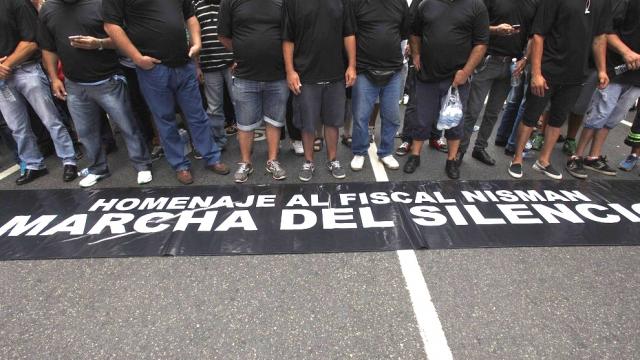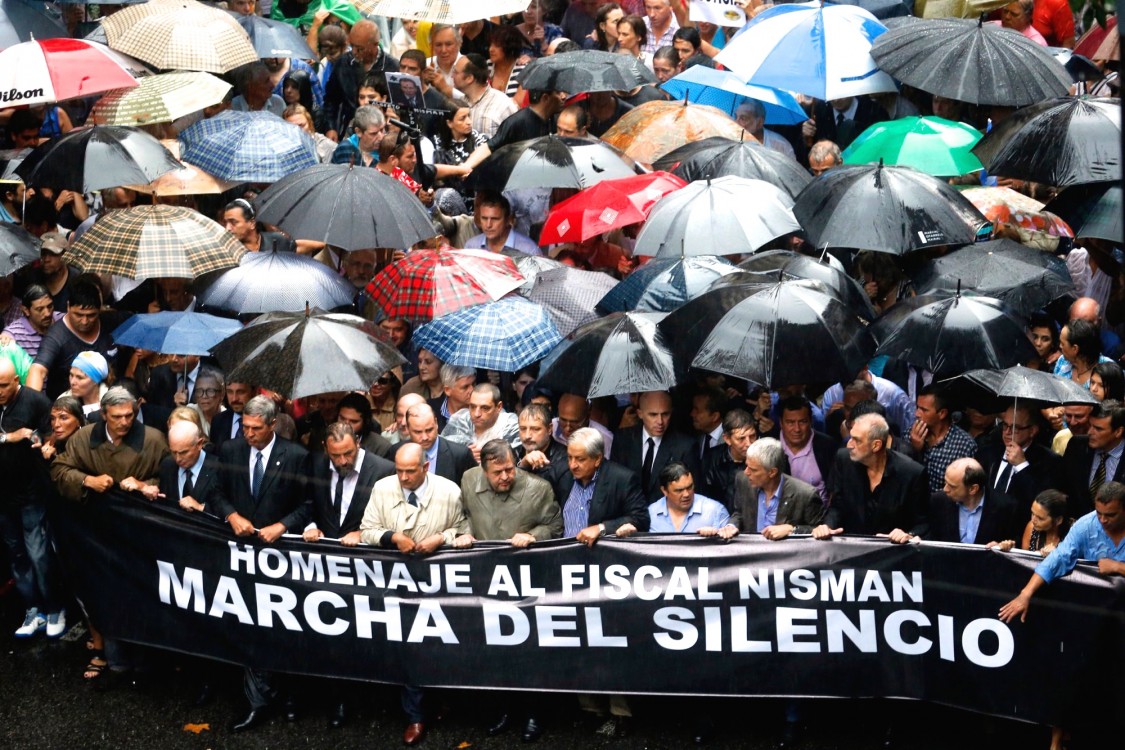
As far as Latin American protests go, last Wednesday’s big march in Argentina was… different.
As many as 400,000 people packed into downtown Buenos Aires and marched silently in the pouring rain. They were paying homage to prosecutor Alberto Nisman, one month after he was found dead. He was due to present findings that he said implicated the Argentine government in a cover-up of the country’s worst terrorist attack.
Initially billed as a testament to Nisman, the march morphed into a much broader vent about Argentina’s insecurity and perceived lack of a transparent and fair judicial system.
Last Friday, a prosecutor filed charges against President Cristina Fernandez de Kirchner and her foreign minister, formally accusing them of plotting with Iran to cover up the investigation of the 1994 Jewish center bombing. The government denies the charges. (To catch up on this gripping saga, here’s a guide to the Nisman affair.)
But Wednesday’s march was extraordinary for a number of other reasons.
Recent demonstrations in countries like neighboring Brazil and Venezuela have been archetypal examples of civil unrest. They’ve been led by angry young people, often students, and have sometimes descended into violence and property damage. And they’ve featured vicious crackdowns by the police and military.
Not this Buenos Aires umbrella march. Here are three things that set it apart.
1. The Crowd was Quiet
This was largely by design. It was organized by prosecutors as a “silent march,” to honor Nisman peacefully.
The event did trigger strong political messages, with opposition leaders calling for an anti-government rally, and the Fernandez de Kirchner administration branding it a “soft coup” attempt.
Despite the vast crowds, the marchers largely abided by the silent dictum. Occasional sporadic rounds of applause swept across the protesters, along with isolated chants of “Argentina, Argentina!” and “Justice, justice!” But the cries were often met with angry shushing and soon petered out.
2. The Crowd was Old
There aren’t any good statistics available, but one thing was very clear from the crowd: It was noticeably aged. That’s quite unlike the many recent anti-government protests in Brazil and Venezuela dominated by riled-up students.
Diego Fleitas, a Buenos Aires attorney and public policy expert, says the demographics of the Buenos Aires march didn’t surprise him. He says young and less socially advantaged Argentines are typically driven to the streets by economic, rather than esoteric themes like judicial impartiality.
“The profile was middle and upper-middle class and middle-aged,” Fleitas says. “It was noticeable that there weren’t many young people,” he adds. “This is not their agenda.”
3. There Were Very Few Cops
Compared to some of the protests in Brazil last year, the Buenos Aires march was extraordinary for its almost complete lack of uniformed police.
Protests in Brazil have been marked by an intense and often violent police presence. On the World Cup’s opening day, for instance, GlobalPost observed in Sao Paulo how police steered demonstrators through pre-planned routes, and fired stun grenades and tear gas at the crowds.
In Venezuela, more than 30 people were killed last year in violent clashes with police during demonstrations against spiraling prices and increased insecurity.
Buenos Aires’ silent march couldn’t have been more different. In three hours covering the protest, GlobalPost saw fewer than 10 police officers. Small groups of informal security officers organized by local labor unions did much of the very scant crowd control evident at the event, and cops were almost invisible.
The government is trying to antagonize the public as little as possible, Fleitas says, which could help explain the low police presence.
Ultimately, the march ended peacefully, with hundreds of thousands of soaking wet protesters walking casually home through the pouring rain.
3 WAYS TO SHOW YOUR SUPPORT
- Log in to post comments












